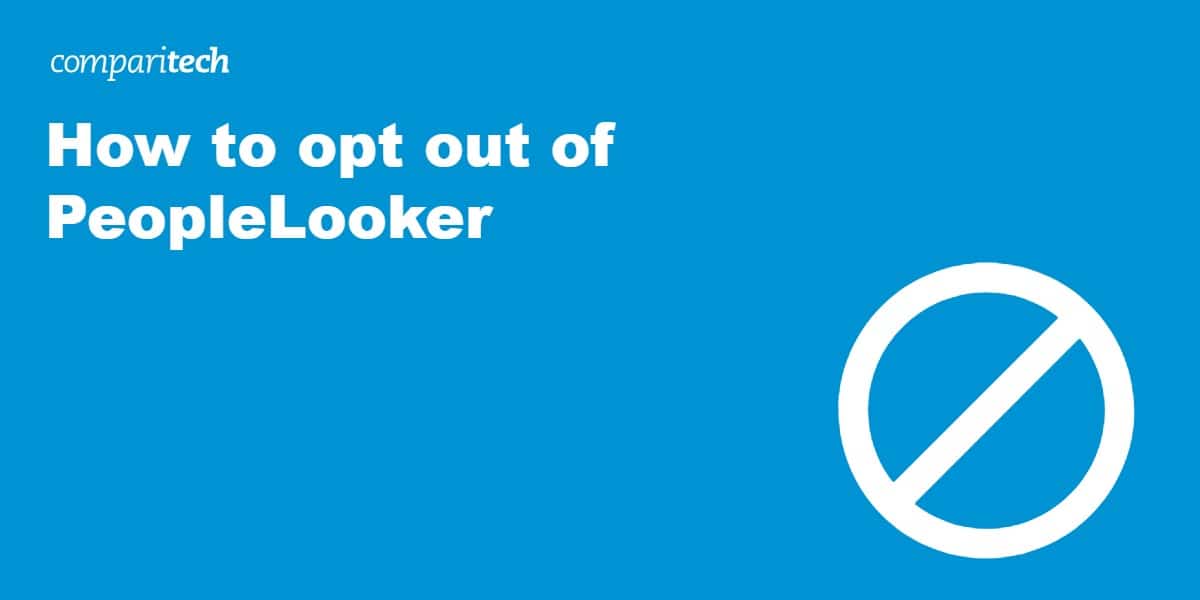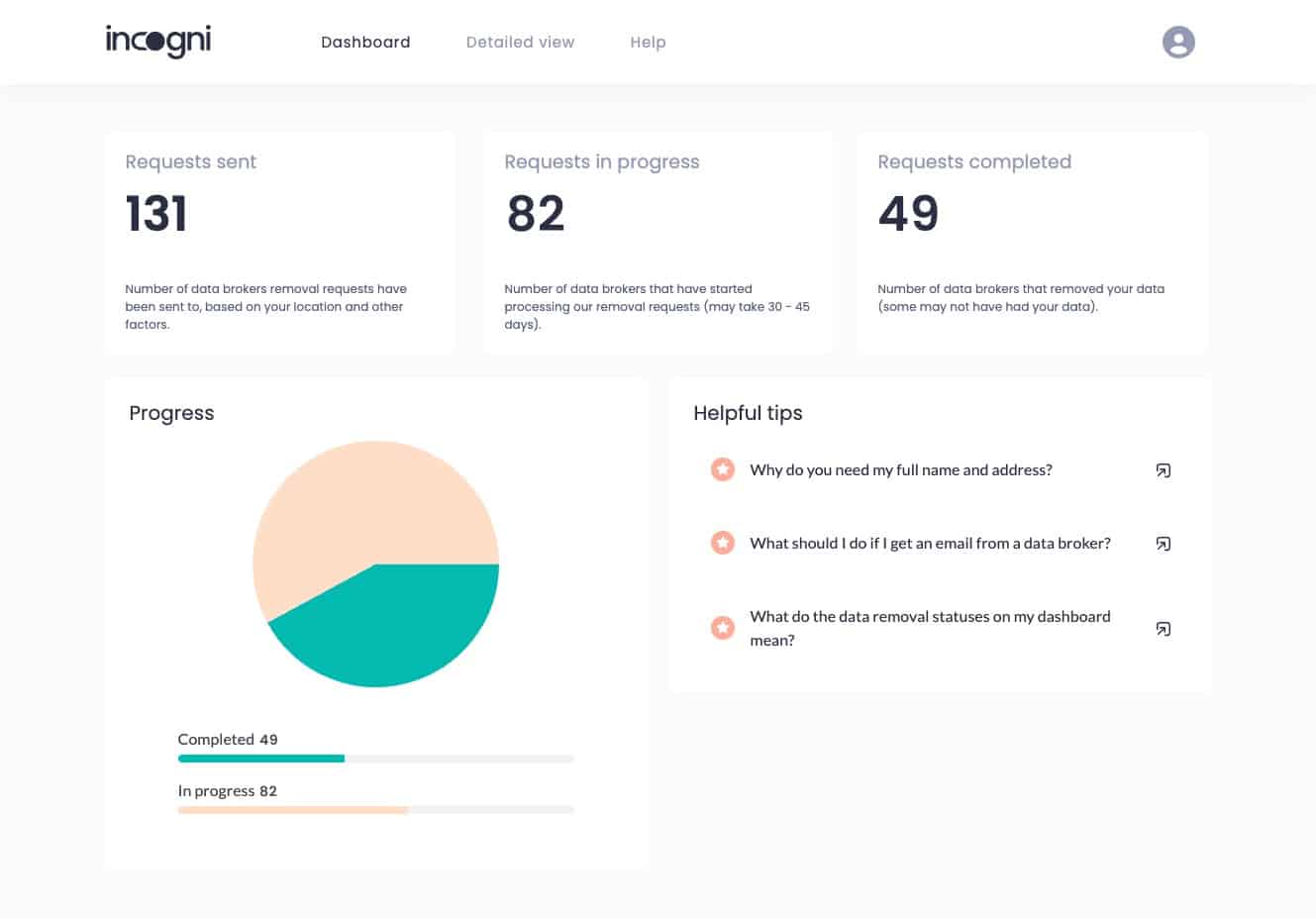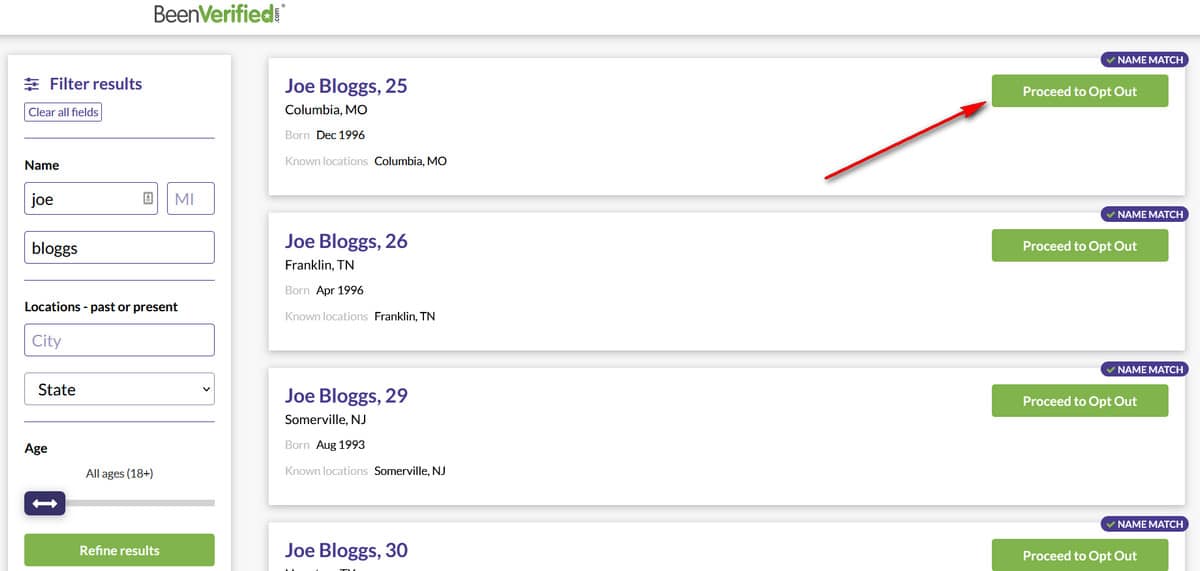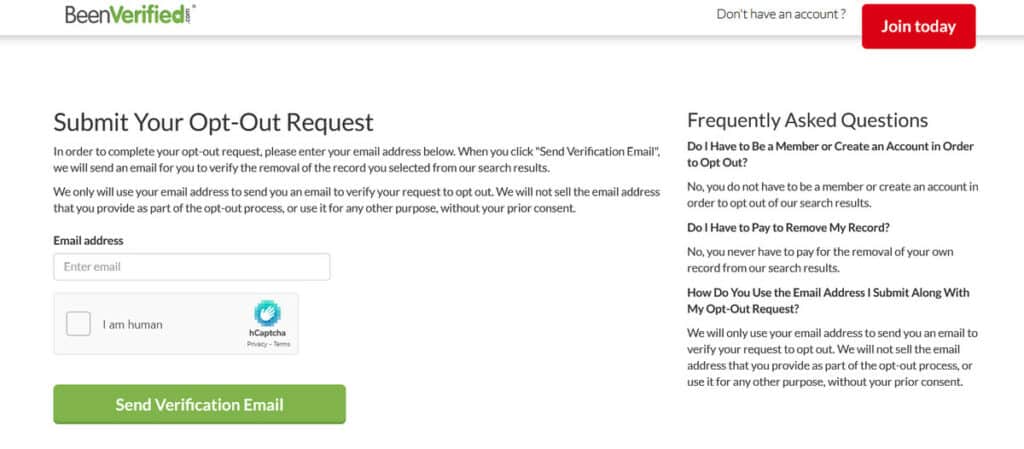PeopleLooker is a popular online database that collects and stores personal information on millions of people. While it may sound harmless, there are many reasons why you may want to opt out of this database.
PeopleLooker obtains your data in several ways. First, the service collects information from public records. These records often include things like personal contact information, date of birth, address history, and criminal history. They also collect data from other sources such as social media profiles, email addresses, and more.
Considering your data is put online without permission, it is unsurprising why many users are opting out of the service. Below, we’ll explain how to opt out of PeopleLooker manually, and with automated tools that greatly simplify the process. Here are a few of our favorites:
- Incogni: Our first choice. Designed by privacy giant, Surfshark, it’s affordable and works with over 180 different data brokers. Extremely hands-off — just sign up and forget all about it.
- DeleteMe: Low-cost option with discounts for multiple users. Primarily US-focused but has started rolling out internationally. Removes you from around 40 data broker databases and offers 24/7 customer support.
- PrivacyBee: A higher-end product that can delete you from over 200 databases. Costs a little more but comes bundled with additional privacy tools like a tracker-blocker and data breach monitor.
Why you should opt out of PeopleLooker
One of the main reasons to opt out of PeopleLooker is privacy. As an online database, PeopleLooker has access to a huge amount of personal information about you and other people. This information can be accessed by anyone with an internet connection, which means that your private information is vulnerable to identity theft, scams, phishing, and other malicious attacks.
Another reason to delete your information from PeopleLooker is safety. By providing access to personal information like your full name, address, phone number, and email address, you are essentially putting yourself at risk of harassment, stalking, and even physical harm.
Related: The Best Identity Theft Services
How to wipe your data from PeopleLooker with Incogni
PeopleLooker is a prime offender when it comes to adding your personal data online without your consent, but it’s not the only service that’ll do this. Our manual process below will put forward a request to delete your data from their website and their data partners, but sites out of its reach will continue to list your data.
Say hello to Incogni, the ultra-efficient data removal powerhouse developed by the leading privacy experts at Surfshark. Incogni does all the hard work for you, contacting all major data aggregators on your behalf to request the removal of your sensitive information from online databases. Unlike PeopleLooker, which only has US-based databases within its catchment, Incogni also covers the UK and Europe.
If simplicity is your jam, then Incogni will be an ideal match. Once it’s set up and knows what to look for (your data), it’ll do its thing in the background without you having to lift a finger. If data aggregators ignore a deletion request, Incogni also follows up, raises escalation requests if required, and revisits past data handlers to ensure they haven’t added your data again.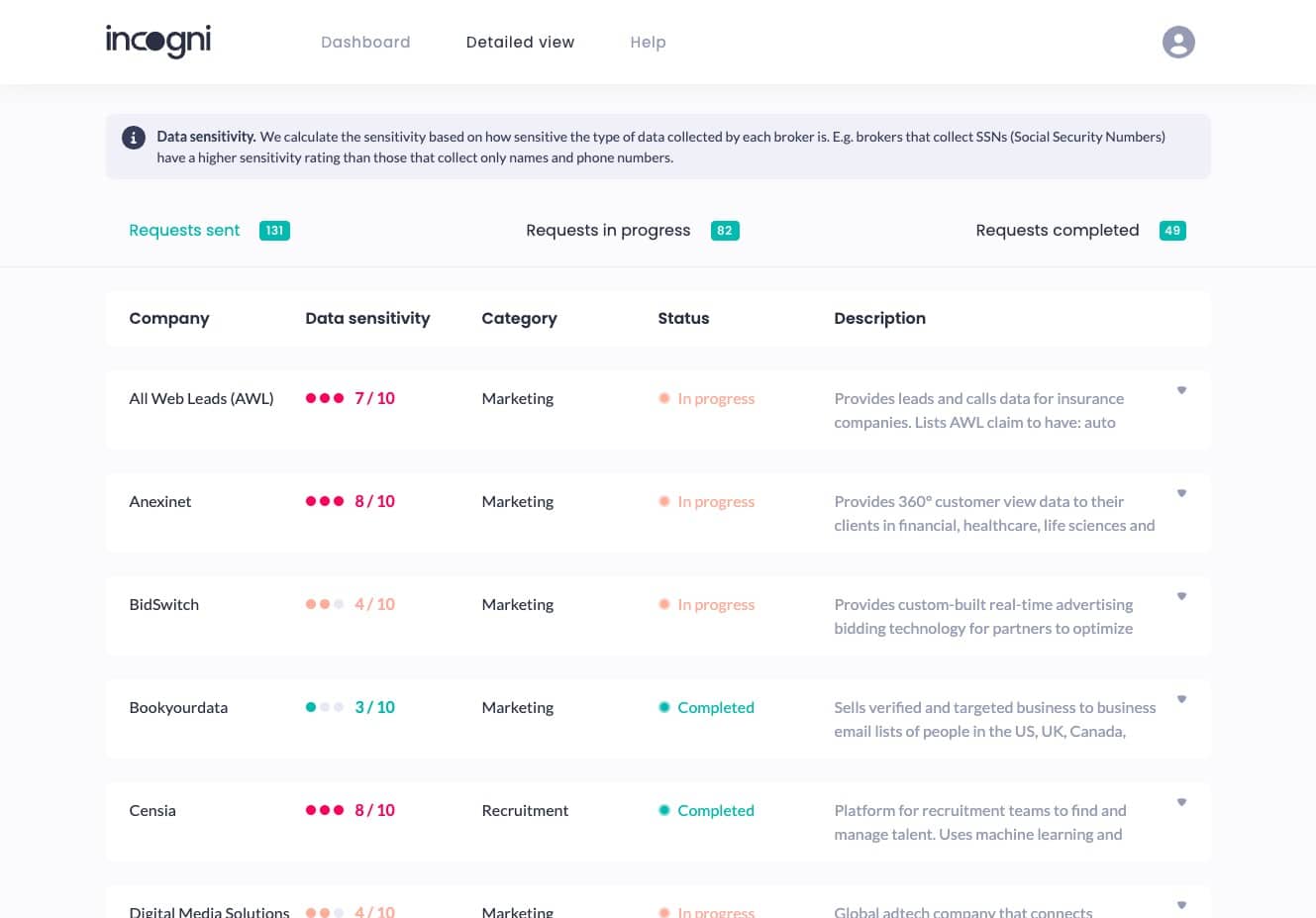
BEST PERSONAL DATA REMOVAL SOFTWARE:Incogni does the hard work for you and ensures that your personal data is removed from over 130 different data brokers. You can try it risk-free with a 30-day money-back guarantee.
How to opt out of PeopleLooker manually
Ultimately, whether or not you choose to opt-out of Peoplelooker is up to you. But if you value your privacy and safety, it is something worth considering. You can delete your information from Peoplelooker and protect yourself online with just a few simple steps.
1. Record Search
Navigate to the “don’t sell my data” page on PeopleLooker and click the green button on the prompt to reveal the search page. Note: PeopleLooker and BeenVerified are essentially the same services, except PeopleLooker limits search results to free users. Enter your first and last name to search for any matching records.
2. Send your opt-out request
Once you’ve found the record you need to be removed, click the “Proceed to Opt-Out” button to the right of the record.
Then, enter an email address on the page shown below, solve the CAPTCHA, and click “Send Verification Email.”
3. Finalize your opt-out request
You’ll receive an email with a verification link. Click the link, and you’ll receive a confirmation email stating that PeopleLooker has received your record deletion request. In addition, they’ll instruct their data partners to remove your records from their databases too.
FAQs about opting out of PeopleLooker
Once data is deleted, will it reappear on peopleLooker?
No, once your data has been deleted from PeopleLooker, it will not be restored or made available again. However, it is important to note that the information held by PeopleLooker may still appear in other online public records and databases, so it is essential to take steps to remove personal information from these sources as well.
What information is collected by PeopleLooker?
PeopleLooker collects a wide range of personal information, including full name, address history, phone number, email address, criminal history, and more. They may also collect data from public records such as voter registration records and property deeds.
Do I have to pay to opt out of peopleLooker?
No, it is free to opt out of PeopleLooker. However, you may need to pay a small fee if you want to request that your data be removed from certain public records and databases. In most cases, however, opting out of PeopleLooker can be done for free.
What if I find multiple records on PeopleLooker?
If you find multiple records for yourself on PeopleLooker, it is important to take steps to remove your information from all of these sources. This may require contacting individual public record and database providers and opting out of PeopleLooker directly. You can typically remove your personal information from most databases by sending an email request or filling out a form.

